Abstract
Ross, J. K., Diwell, A. E., Marsh, J., Monro, J. L., and Barker, D. J. P. (1978).Thorax,33, 3-9. Wessex cardiac surgery follow-up survey: the quality of life after operation. Two hundred consecutive adult patients in all diagnostic categories who had undergone open-heart surgery at the Wessex Regional Cardio-Thoracic Centre were assessed for the subsequent 20 months. They were interviewed, using a standard questionnaire, at the time of referral for surgery and at 2, 8, and 20 months after operation. The questionnaire elicited information on physical activity, employment, dependence on others, leisure activities, mood, and sexual relationships. Patients under 21 were excluded, but there was no upper age limit. Sixty-six per cent were over the age of 50, and many who were close to or over retirement age were included.
The results show that 20 months after operation 68% of the survivors denied limitation of normal activity compared with a preoperative figure of 12%, and that there had been a corresponding pattern in return to useful employment. Seventy-four per cent of men of employable age were back at work or capable of gainful employment, and 76% of these had returned to their usual jobs. No correlation was found between the time taken to resume work and the patient's age or diagnosis. There was an equally satisfactory trend in female employment in both full- and part-time jobs, amounting to a 16% increase on the preoperative figure.
Decreased dependence upon others was readily identified as a significant gain for 73% of patients at the eight-month follow-up. Throughout the subsequent year the favourable trends in employment statistics, use of leisure time, mood, and sexual relationships point to an overall improvement in the quality of life for the majority of patients.
Full text
PDF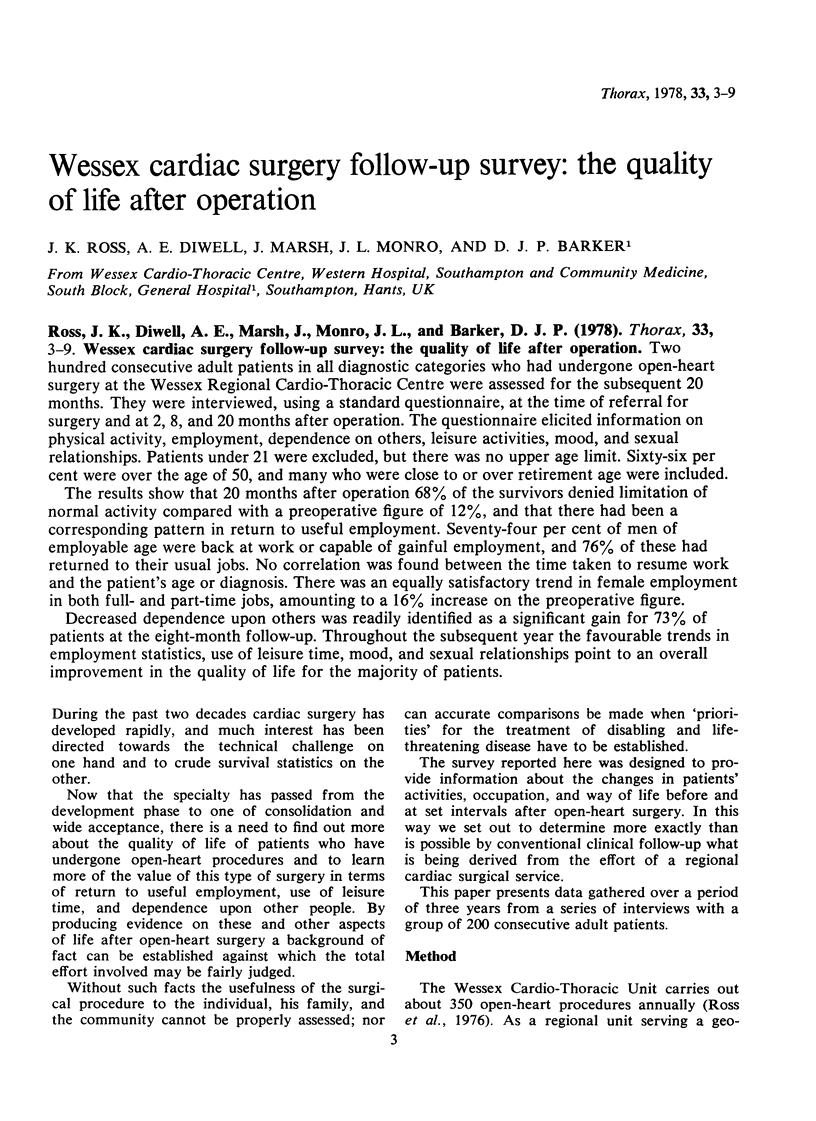
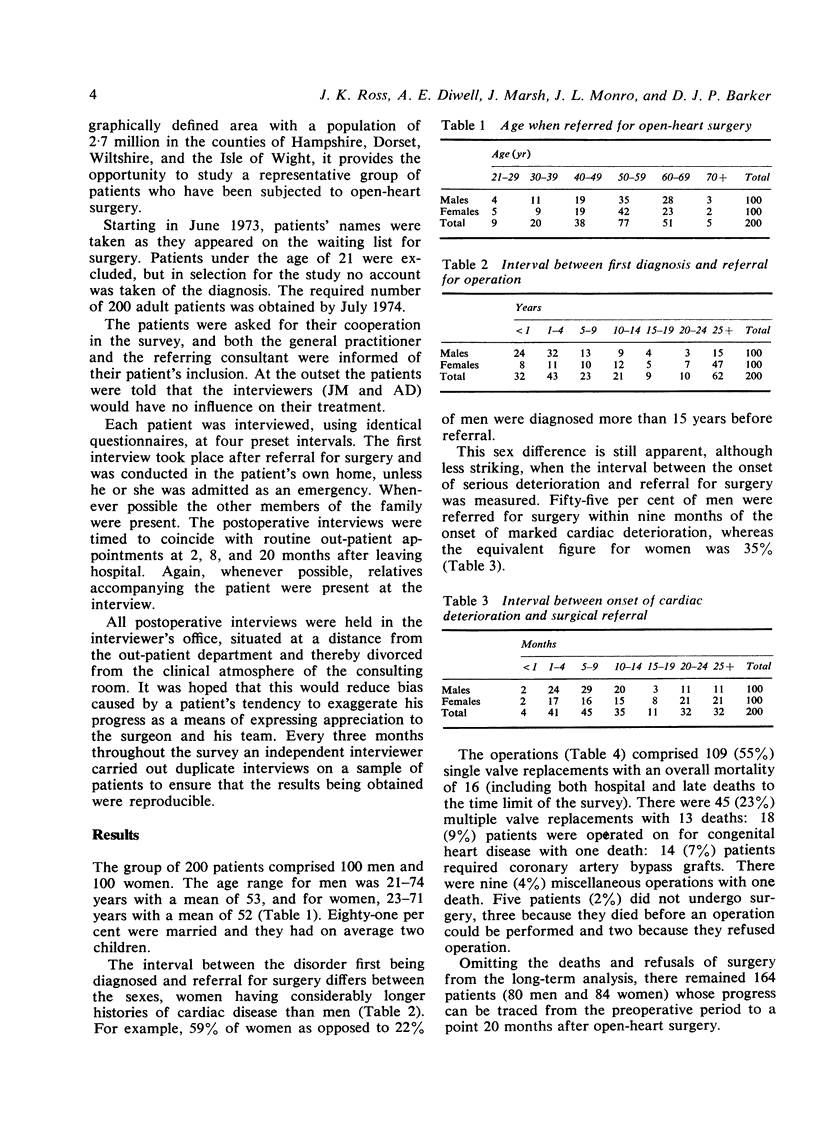
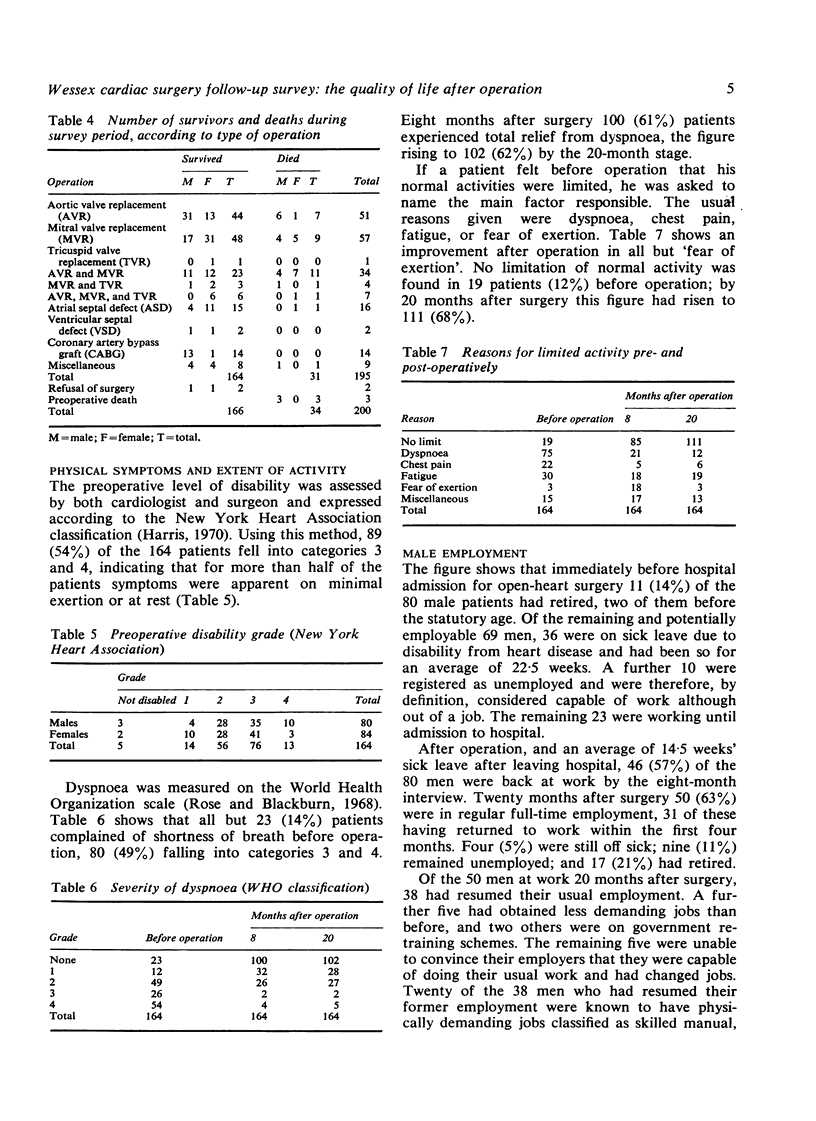
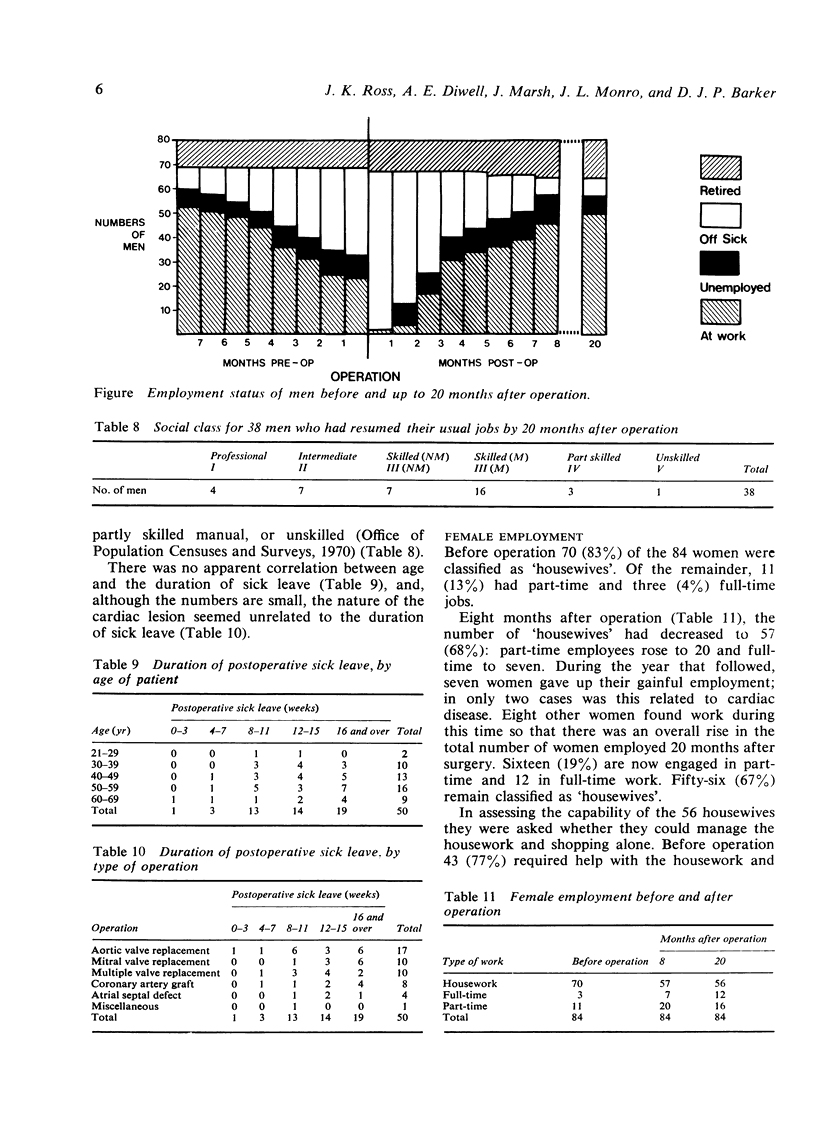
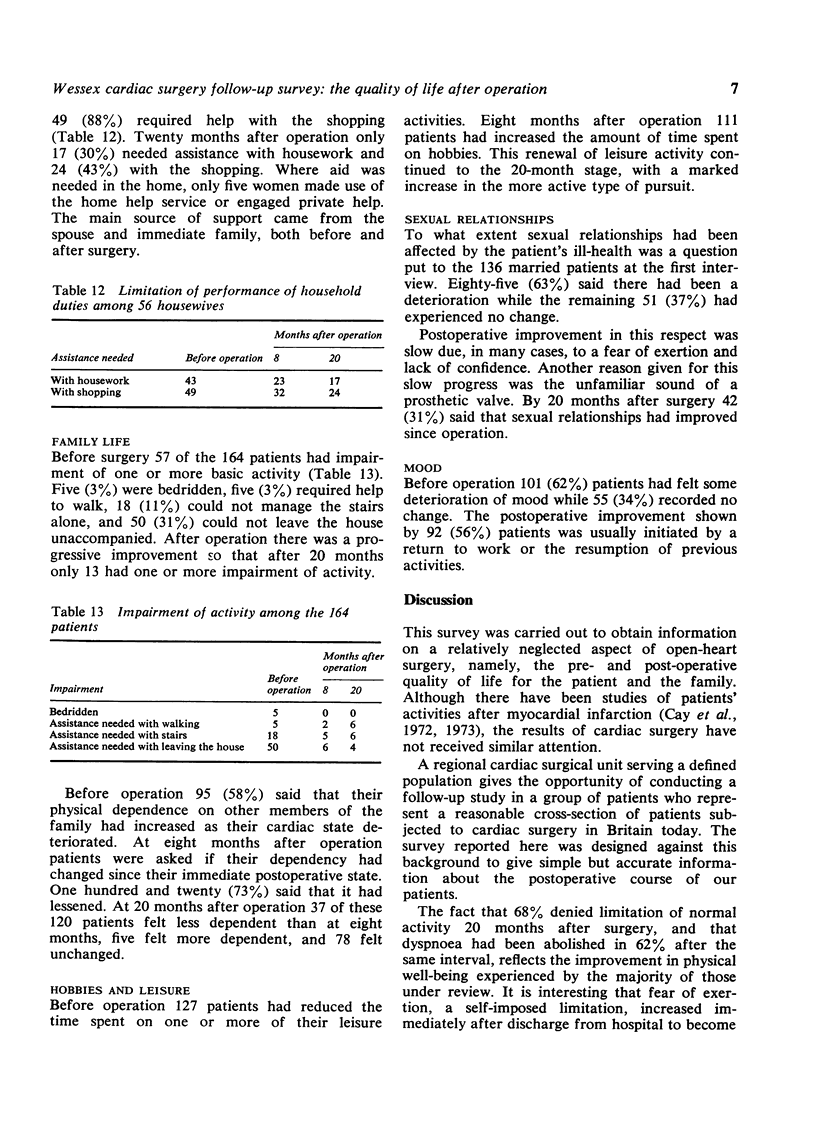
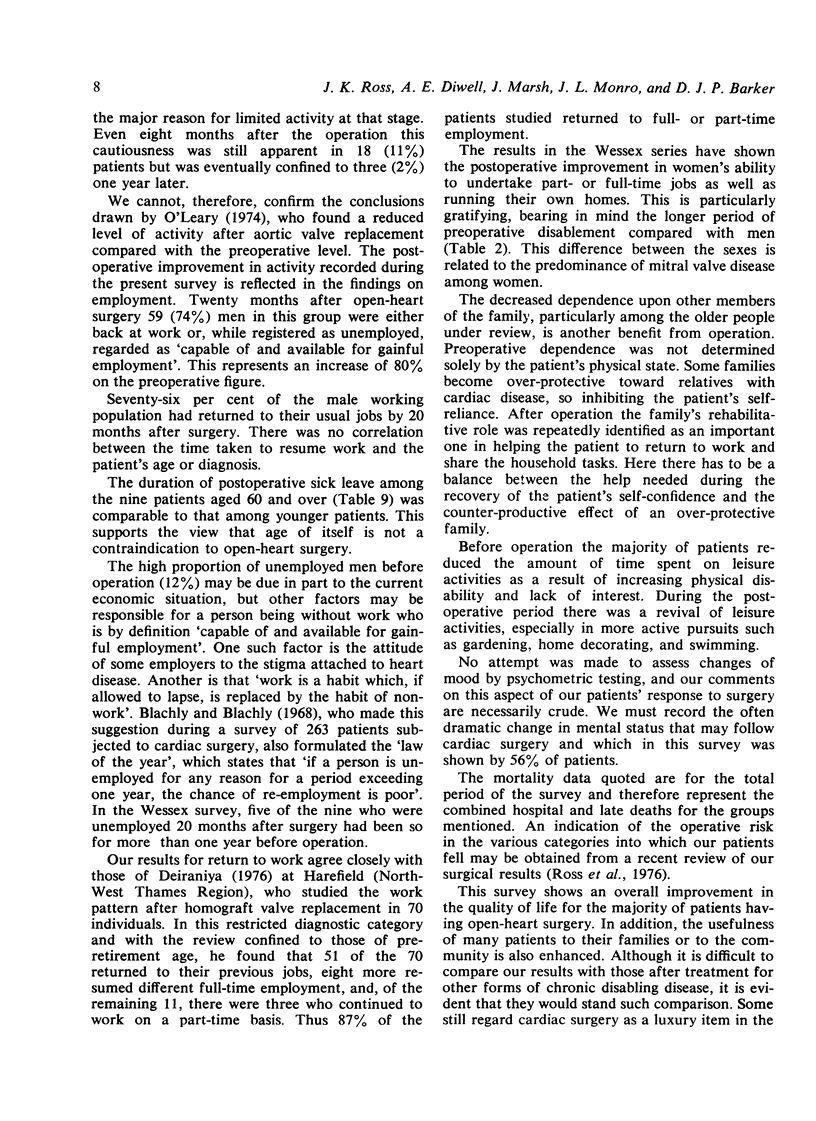
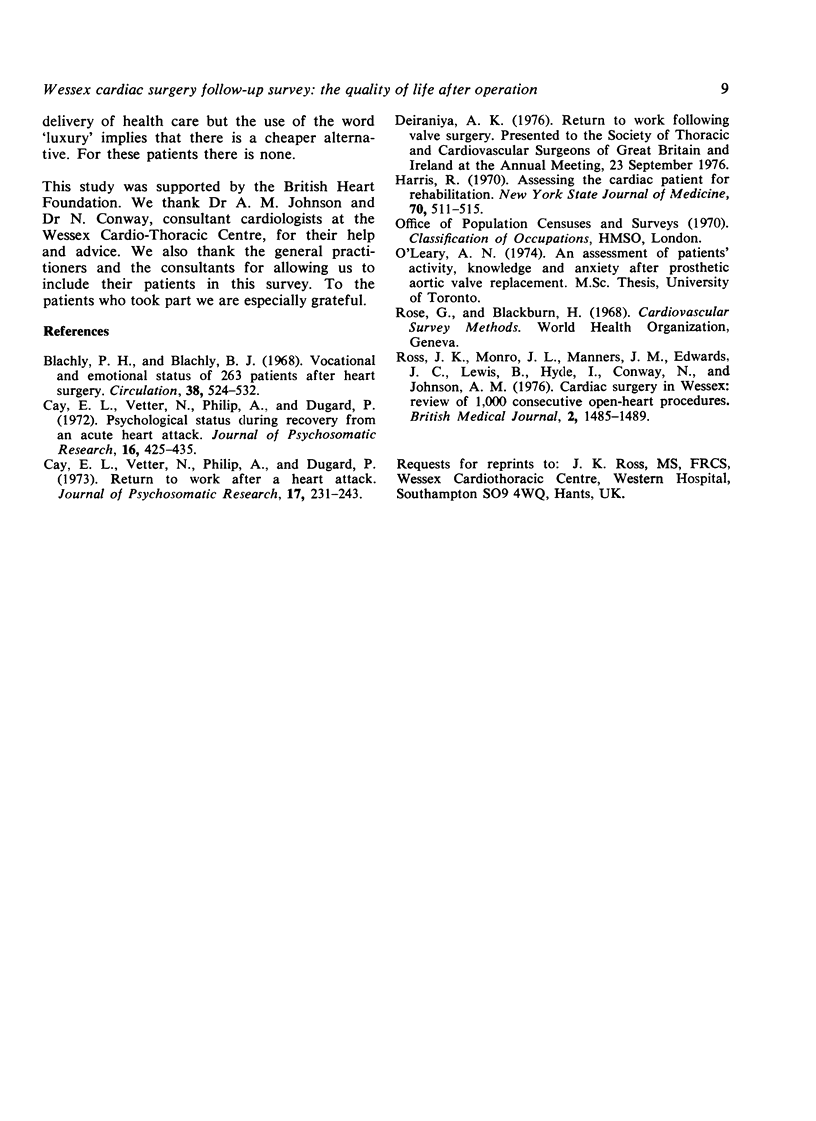
Selected References
These references are in PubMed. This may not be the complete list of references from this article.
- Blachly P. H., Blachly B. J. Vocational and emotional status of 263 patients after heart surgery. Circulation. 1968 Sep;38(3):524–532. doi: 10.1161/01.cir.38.3.524. [DOI] [PubMed] [Google Scholar]
- Cay E. L., Vetter N., Philip A. E., Dugard P. Psychological status during recovery from an acute heart attack. J Psychosom Res. 1972 Oct;16(6):425–435. doi: 10.1016/0022-3999(72)90068-2. [DOI] [PubMed] [Google Scholar]
- Cay E. L., Vetter N., Philip A., Dugard P. Return to work after a heart attack. J Psychosom Res. 1973 Jul;17(3):231–243. doi: 10.1016/0022-3999(73)90028-7. [DOI] [PubMed] [Google Scholar]
- Harris R. Rehabilitation of the cardiac patient. Assessing the cardiac patient for rehabilitation. N Y State J Med. 1970 Feb 15;70(4):511–515. [PubMed] [Google Scholar]
- Ross J. K., Monro J. L., Manners J. M., Edwards J. C., Lewis B., Hyde I., Conway N., Johnson A. M. Cardiac surgery in Wessex: review of 1000 consecutive open-heart procedures. Br Med J. 1976 Dec 18;2(6050):1485–1489. doi: 10.1136/bmj.2.6050.1485. [DOI] [PMC free article] [PubMed] [Google Scholar]


